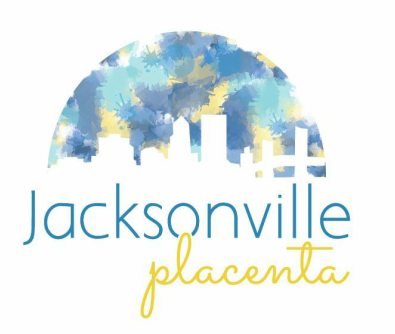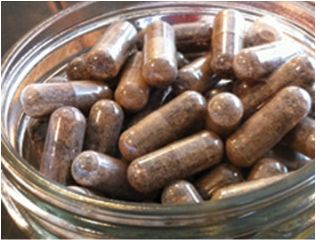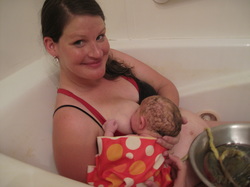| You always read about the benefits of placenta encapsulation when searching the internet for information, but did you know that placenta encapsulation is risky? I know it sounds odd to hear a professionally trained placenta encapsulation specialist in Jacksonville, Fl say that on the internet, but I take these risks seriously and so should you! When you are searching for the right specialist to encapsulate your placenta, there are ten questions you should always ask before hiring them. |
1. What trainings have you completed? What certifications do you carry? Where?
The answer to this question is one of the most important. When searching for a specialist, they should of course be highly trained and experienced in placenta encapsulation. The most common programs are PBI, APPA, and Full Circle, but there are numerous local programs. In addition to holding this certification, they should also have completed food safety training through the state health department AND a blood borne pathogens course (preferably designed specifically for birth professionals). Ask to see these certifications!
2. What is your sanitation protocol?
Never ask, "do you properly sanitize your work space." The specialist would of course always say yes. Ask them an open ended question in which they have to explain exactly how they sanitize their work space and equipment. OSHA standards dictate that in order to kill blood borne pathogens the specialist must use hot soapy water, bleach-water immersion, and a clean water rinse. The work space and equipment should be sanitized before, during, and after. If they are not using bleach or a hospital grade disinfectant, then they are not killing any blood borne pathogens found in their clients blood products.
3. How long have you been practicing? How many placentas have you processed?
If you are a client who would prefer a more experienced specialist, this question is a must.
4. Do you encapsulate in your home only, or will you come to my home?
A placenta encapsulation specialist should have no issue coming to your home to encapsulate your placenta if that is what you are most comfortable with. I would be worried about their protocol if they are not willing to accommodate this.
5. Do you have any pets or children? Are they in your work space during the encapsulation process?
This question is to ensure that their work space remains clean and free of any outside germs or allergens. You dont want a sticky fingered toddler waddling around and you surely dont want a dog in the area. The last thing we want to see when we open our jar is a stray dog hair.
6. What equipment do you use? What is reusable? What is only used once? Is it used for encapsulation only?
You want to make sure that your specialist is using dedicated equipment that is kept separate from their personal kitchen supplies. This again just ensures that the equipment is not continually exposed to bacteria that could make you ill. I also use disposable equipment as much as possible, including sponges, gloves, scissors, knives, and cutting boards.
7. How do I know I am receiving my placenta, and not someone else's?
If you choose to have your placenta processed in your specialists home, it is important to ask how this is prevented. For example, I never processes multiple placentas at once. If more than one client gives birth in one day. I completely finish processing the first placenta before I process the second. This way there is no way there is a mix-up. Also, when picking up from the hospital, I check the name on the container before I leave your room to ensure there was no mix up in the hospital. I also encourage the client to keep the placenta with them at all times.
8. How do you dehydrate the placenta? How long do you dehydrate it?
I recommend choosing a specialist who always dehydrates at 160 degrees regardless of method because this temperature will effectively kill blood borne pathogens - including the very hardy Hepatitis C. When it comes to dehydration time, If your potential specialist gives a specific amount of time for each method, look out! Dehydration time varies and the correct answer is, "I dehydrate the placenta until the pieces snap cleanly and it is able to be ground easily into a fine powder."
9. How do you package my placenta pills?
Preferably, your pills should be stored in either an amber or cobalt jar to prevent direct sunlight exposure. Your pills should be stored in a dark, cool, dry place. It is also good if your specialist includes a food grade desiccant pack in your container - especially in Jacksonville, where we have a very humid climate.
10. What are the contraindications for placenta encapsulation?
The answer to this question is ever evolving because new research continues to be published concerning the placenta, how it functions, and abnormalities that can be present. Currently these are my personal contraindications: Infection/fever present in the mother, cancer of the placenta, pre-eclampsia, placenta that is sent to pathology for testing, placenta that is left at room temperature for more than four hours, uterine infections or chorioamnionitis, heavy smoking during pregnancy, certain medications, certain genetic disorders.
You only have one chance to have your placenta encapsulated correctly. It is important to know that your specialist is experienced and knows what they are doing. It is important to know that your safety is key so that you do not become ill or end up having to discard your capsules.
If you have any other questions about placenta encapsulation, please feel free to contact me! My preferred method of contact is via email at [email protected] but I can also be reached by phone at 904-575-8314. I currently service Jacksonville, Jacksonville Beach, Orange Park, Fleming Island, Green Cove Springs, Middleburg, St. Augustine, and Gainesville, Fl.



 RSS Feed
RSS Feed
